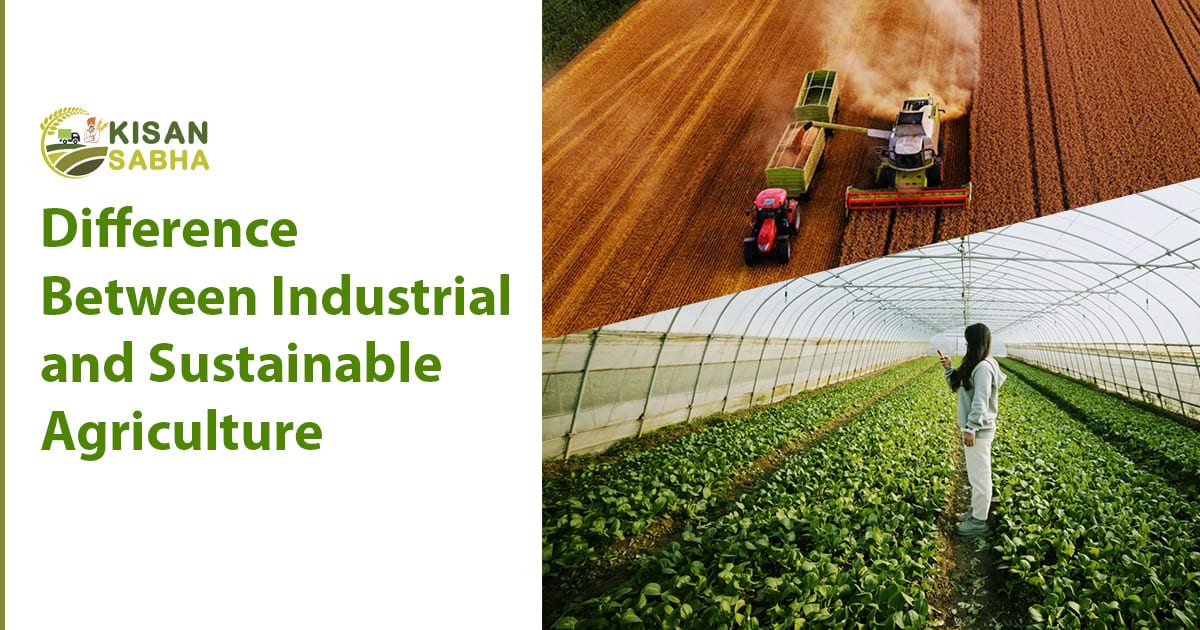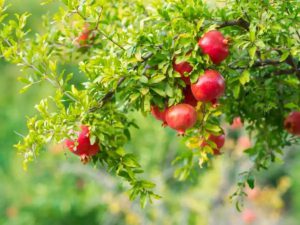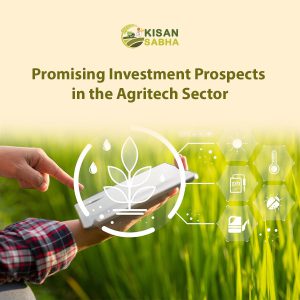Crop production has traditionally been dominated by industrial agriculture, but as sustainability becomes more of a priority, some are beginning to look into alternatives. In contrast, sustainable agriculture offers a solution that is both good for the environment and still able to feed the world’s expanding population.
We’ll compare the differences between industrial and sustainable agriculture in this blog post and weigh the advantages and disadvantages of each. Continue reading to learn more about how each type of farming affects our environment.
Industrial Agriculture
Although industrial agriculture is one of the most common farming practices today, its environmental and economic impacts have been questioned. These questions contrast industrial agriculture with its more environmentally friendly counterpart, sustainable agriculture.
It is a type of agriculture distinguished by the use of industrial techniques and methods. Since the Industrial Revolution in the 18th century, this type of agriculture has been developed and practiced. Large-scale modern machinery, synthetic fertilizers, pesticides, and genetic engineering are commonly used.
Industrial agriculture aims to produce large quantities of food at a low cost. This farming method has led to the creation of monoculture crops, where a single crop is grown over a large area. Critics often chastise this type of farming for its negative environmental impact, as it can deplete soil, pollute water, and reduce biodiversity.
Why Is Industrial Agriculture Important?
Industrial agriculture is capable of producing large amounts of food in a very efficient manner. This is critical in a world with a growing population and a need for more food. Furthermore, industrial agriculture can help to ensure food security by providing a consistent and reliable supply of food.
The Benefits and Drawbacks of Industrial Agriculture
Industrial agriculture has both pros and cons. On the one hand, it offers increased production, improved efficiency, and economies of scale. On the other hand, it also leads to environmental pollution, soil degradation, and adverse health effects. Therefore, it is crucial to strike a balance between the benefits and drawbacks of industrial agriculture and strive for sustainable farming practices.
Sustainable Agriculture
Sustainable agriculture refers to a wide range of agricultural practices. These processes, when combined, aim to sustain the land and farming economy by working with natural processes rather than against them. The term “sustainable” refers to any practices that help a farm become more future-ready and resilient.
Water management, crop management, soil fertility, energy and waste management, and disease or pest management are all aspects of sustainable farming. Sustainable agriculture encompasses a wide range of topics, including but not limited to the following:
- Soil health and conservation.
- Water conservation and management.
- Controlling pests.
- Use of cover crops.
- Organic farming techniques.
- Animal welfare.
- Energy efficiency.
- Community growth.
Why Is Sustainable Agriculture Important?
Environmentally sustainable agriculture is critical. Sustainable agriculture practices aid in the conservation of natural resources and the prevention of soil erosion and water pollution. It is also crucial for the economy. Sustainable agriculture practices help farmers save money and earn more. It also ensures that society has balanced food security. It aids in the improvement of nutrition and the reduction of exposure to pesticides and other harmful chemicals.
The Benefits of Sustainable Agriculture
Environmentally friendly agriculture practices aid in the conservation and protection of our natural resources. Reducing pollution, soil erosion, and greenhouse gas emissions are all part of this.
Economically feasible- The economic viability of sustainable agriculture is a key advantage. This means that it can be profitable for farmers while also being environmentally friendly.
Supports local communities- Sustainable agriculture frequently benefits local communities by providing healthy food options and creating jobs.
It is kind- Another advantage of sustainable agriculture is that it is humane. This type of agriculture values animal welfare and ensures that they are treated fairly.
Disadvantages of Sustainable Agriculture
Land use restrictions- The main disadvantage is the limited use of land, which makes it difficult to produce large quantities of food. As a result, mass production is not possible.
It necessitates more effort- Because the use of machines is limited or eliminated, it takes more time and people to successfully produce plants, slowing down production.
Shorter shelf life- Food produced sustainably decomposes faster, resulting in a shorter shelf life. If a shipment is delayed, there is a good chance it will never reach the supermarket because it has already spoiled.
Less fertile lands- Although it is challenging to enhance land fertility merely through crop rotation and without resorting to fertilizers and other chemicals
Also Read:- The Role of Biofertilizers in Agriculture
Which Is Better?
Industrial agriculture is harmful to the environment due to some disadvantages caused by the use of heavy machinery and chemicals. Despite its drawbacks, industrial agriculture remains an important part of our food system. Sustainable agriculture, on the other hand, is only partially applicable because it takes more time and money. The solution is to strike a balance between technology and sustainability. There are technological agricultural solutions that provide sustainability.





